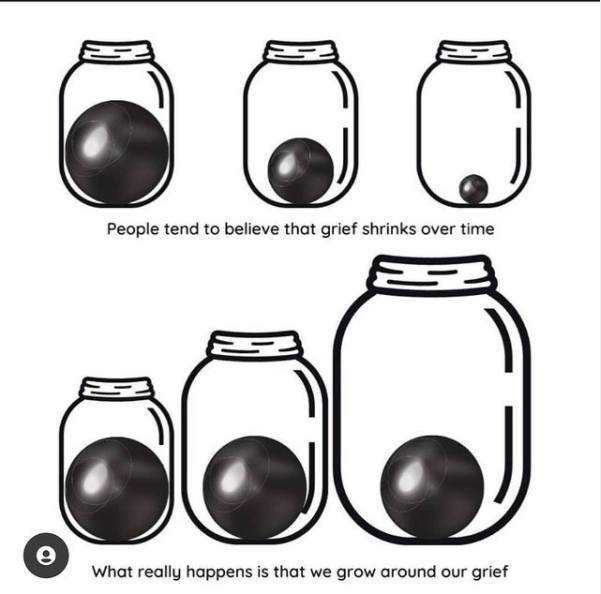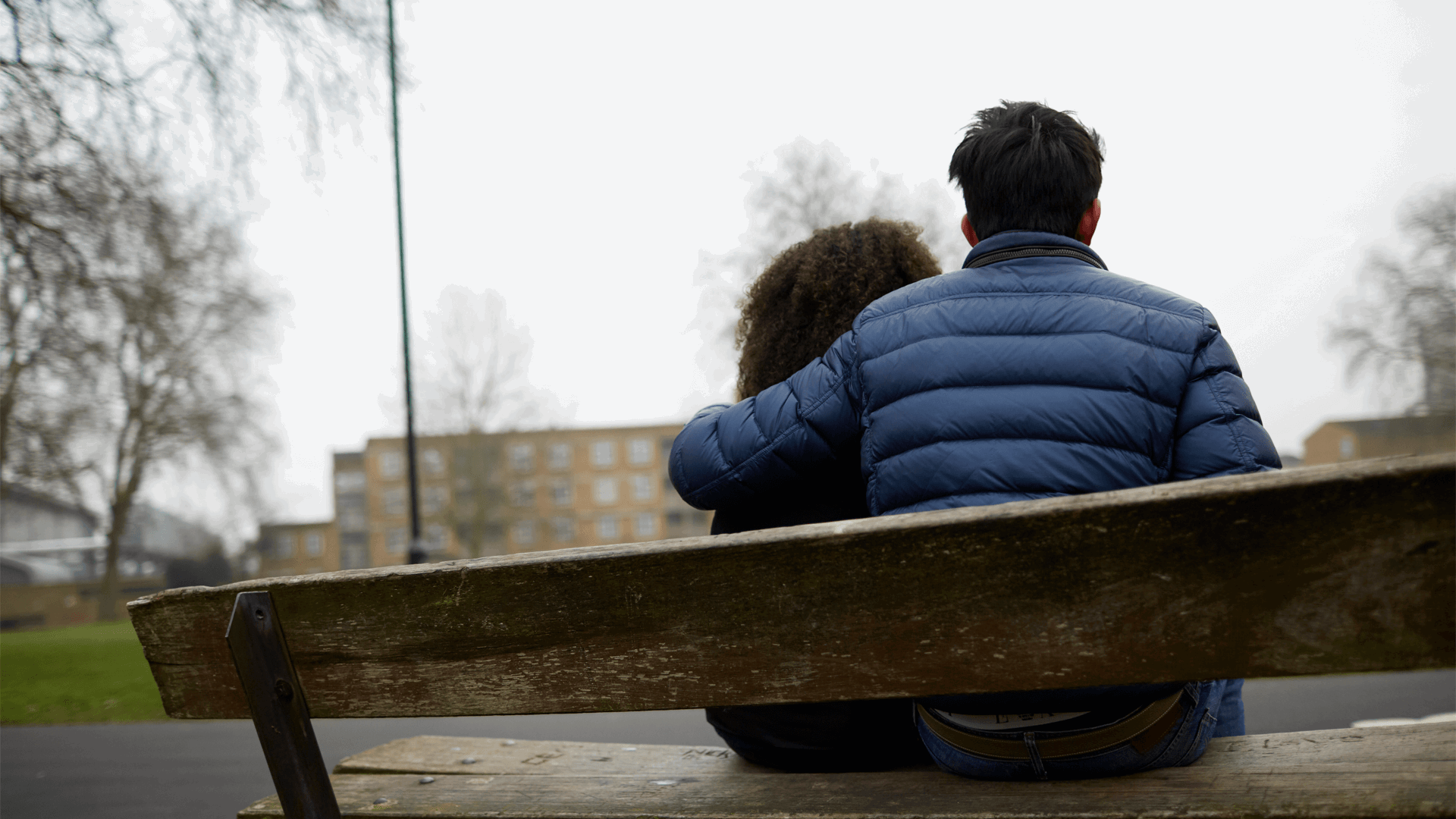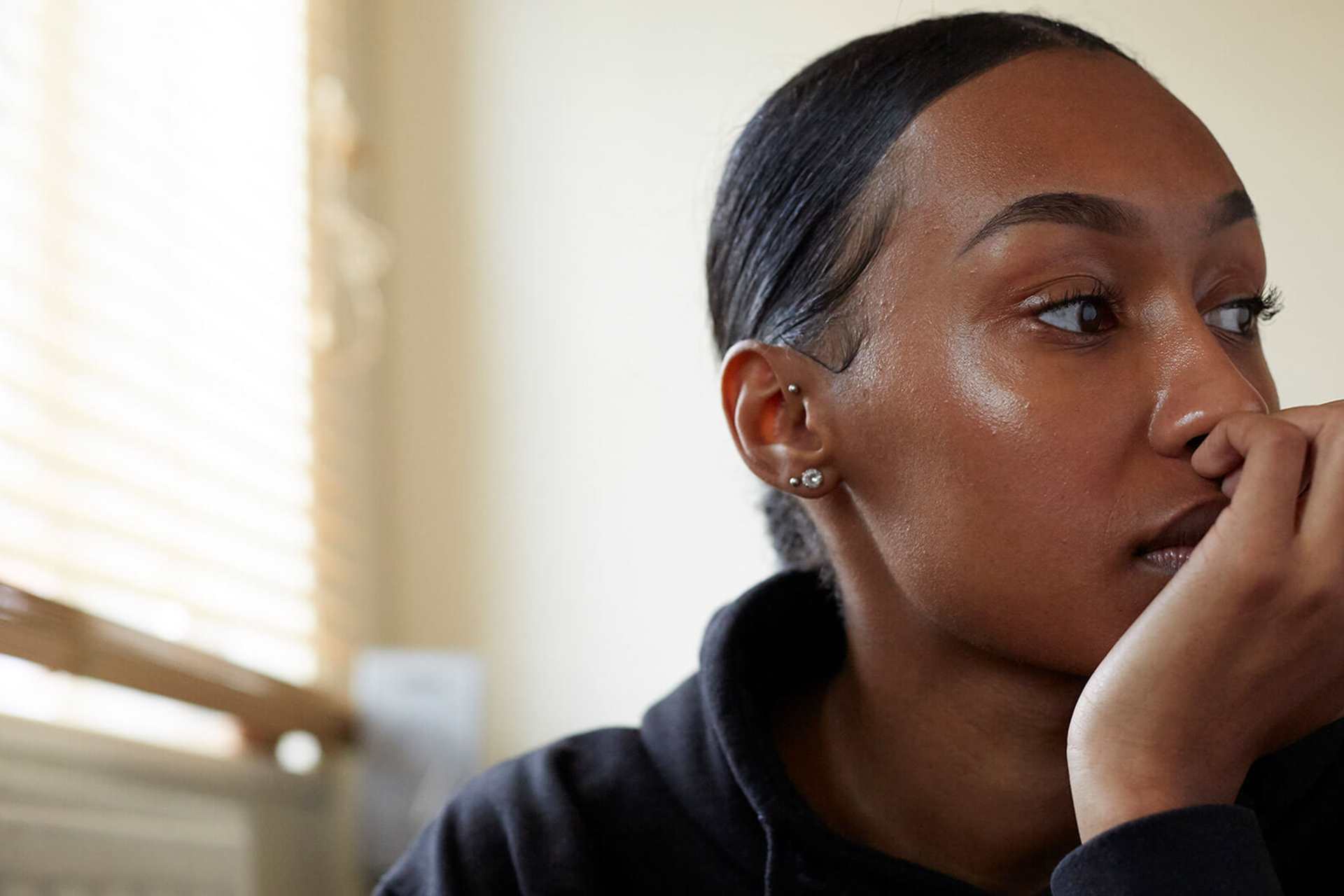Topics mentioned: grief and loss
About: When Laura’s partner went into an induced coma, she began to grieve. She realised you could experience grief when someone was still alive, and describes here how it felt.
I can only describe the feelings as an empty whirlwind.
We all experience grief differently when someone passes away. But sometimes you can experience grief when the person is still alive.
For me, I nearly lost my partner in January of 2018. She spent five days in an induced coma in the intensive care unit, and it felt just as harrowing as when I lost my grandma years ago.
When I found out what had happened, I was on a train that insisted on going through tunnel after tunnel, cutting out my phone signal, leaving me in a shaking state of panic and torment for the long journey between stops.
I got off as soon as I could and stood on a lonely platform in the dark, feeling the same way in my head. I felt despair in wanting not to prepare for the worst, but believing I had no choice.
I wasn’t myself, but at the same time felt like the most raw and vulnerable version of myself.
My experience of grief
I can only describe the feelings as an empty whirlwind; tides of numb and then of overwhelm. I didn’t feel whole, I felt to blame. I stopped functioning: eating, sleeping, taking my medication. I couldn’t use my hands properly, stunned at how to use tube station barriers.
Disbelief clouded everything around me, so much so that when the doctors said she was stable, I was still in pieces. I wasn’t myself, but at the same time felt like the most raw and vulnerable version of myself.
I hadn’t prayed in years, but I prayed on my knees in the only privacy of the toilets. I had never taken my rings off, but I took my rings off then put them back on. During rare moments, I felt okay only until I had time to think again.
It was the textbook experience of grief as we know it when somebody dies, and yet that wasn’t what had happened. But in that mental state I had almost convinced myself it had. I wrote notes to her at her bedside and I wrote letters as though she was already gone.
I sobbed like she was never coming back, like the wound had already been torn open and left to bleed. Because that’s what it feels like even when it’s just a possibility. Even when doctors tell you it’s not a possibility.
I started the process of mourning before it was needed, but that is what grief does: it breaks you down into something that doesn’t make a lot of sense.
During rare moments, I felt okay only until I had time to think again.

Illustration to show that we grow around our grief. There are three jars of the same size on the first row. Each jar contains a ball which gets smaller in size from left to right. Below are three more jars that get bigger from left to right, but the balls stay the same size.
How grief made me feel
Other times, I felt anger. On the first night, I travelled home in the car, seeing the London Eye and its neighbours lit up, but all I felt was rage. Rage that everything carried on as usual, almost in celebration, while I cried in the car and she didn’t do anything at all.
I screamed at TV adverts about funerals and the absurdity that it was all about money, when that was the least important thing in my eyes. There were times I felt selfish and ungrateful.
The fact that I cried over what could be, while others in the neighbouring rooms cried over what was. In terms of chance, our situation had so much more, and yet that’s never how it feels at all. Because grief is not rational, and grief is not lenient.
It hits you when it shouldn’t, and carries on when it needn’t. For weeks after, my lasting anxiety and panic attacks meant I woke up with dread.
I felt as though I was back in that week and had to rush to the hospital and go through the same beds of needles to get through the day. Then I would realise she was beside me, or that I woke up because she was calling me on the phone.
Sometimes there was relief, the most expected emotion, but sometimes the dread persisted, convincing me that the phone call was bad news, or that the worst had in fact happened all those weeks ago. I continued to prepare myself for the grief all over again.
I taught myself to take more time than others had needed, because it was what I needed.
It gets better
Yet, while that period sometimes still affects me, as grief naturally comes in bouts, I have gotten so much better at grounding myself when the panic starts.
Through the process itself of grieving, I now accept reassurances more easily, and offer myself more freedom from the fear, because over time you learn how to.
I handed myself compassion, and space to feel it, not fight it. I taught myself to take more time than others had needed, because it was what I needed.
One of my favourite quotes summarises how I got through it, and continue to move past the hard moments:
Grieve. So that you can be free to feel something else.
More advice on grief and loss
If you have been bereaved, or experienced a loss, visit our guide to grief and loss for information, tips and suggestions on where to get help.
Where to get help
However you're feeling, there are people who can help you if you are struggling. Here are some services that can support you.
-
Grief Encounter
Supports children and young people through bereavement.
Free webchat service available.
- Opening times:
- 9am - 9pm, Monday - Friday
-
Childline
If you’re under 19 you can confidentially call, chat online or email about any problem big or small.
Sign up for a free Childline locker (real name or email address not needed) to use their free 1-2-1 counsellor chat and email support service.
Can provide a BSL interpreter if you are deaf or hearing-impaired.
Hosts online message boards where you can share your experiences, have fun and get support from other young people in similar situations.
- Opening times:
- 24/7





